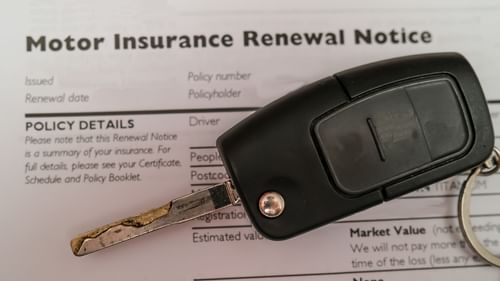How shared car financing makes vehicle ownership more affordable

In today's economic climate, finding affordable ways to own a vehicle is essential. Shared car financing offers a practical solution, allowing multiple parties to share the costs and responsibilities of car ownership. This approach not only reduces financial strain but also fosters a collaborative environment among co-owners.
With the rising costs associated with car ownership, joint car finance presents an innovative way to manage expenses. By splitting the purchase price and ongoing costs, individuals can enjoy the benefits of car ownership without bearing the full financial burden. This method allows for access to higher-quality vehicles and reduces the stress associated with maintaining a car.
Advantages of shared financing
Shared financing significantly reduces personal financial strain by distributing costs among several parties. This approach makes it possible to afford a better vehicle than one might manage alone. Additionally, sharing ownership responsibilities, such as maintenance and repairs, ensures that no single person is overwhelmed with duties, promoting a balanced distribution of tasks.
Moreover, shared financing encourages open communication and cooperation among co-owners. Whether family members or friends, this joint venture enhances relationships and decision-making processes. By working together, co-owners can effectively manage car usage and maintenance schedules, ensuring smooth operation and mutual understanding.
The financial benefits extend beyond the initial purchase, as shared financing also provides advantages in insurance costs. Many insurance providers offer multi-driver policies that can be more cost-effective when split between co-owners. This arrangement also allows for the pooling of resources during unexpected repairs or maintenance issues, creating a financial safety net that individual owners might not have.
Key considerations for joint car finance
Before entering into a shared financing agreement, it is crucial to evaluate eligibility criteria and ensure all parties meet the necessary financial requirements. Understanding these prerequisites helps prevent future complications. Additionally, clearly defining financial obligations, such as monthly payments and insurance coverage, is essential to avoid misunderstandings.
Establishing a decision-making process is vital for maintaining harmony among co-owners. By setting clear guidelines for vehicle use and maintenance, potential conflicts can be minimized. Effective communication channels are crucial for addressing concerns and ensuring a smooth shared ownership experience.
Legal documentation plays a crucial role in shared car financing arrangements. Creating a written agreement that outlines ownership percentages, buyout procedures, and dispute resolution methods provides protection for all parties involved. This document should also address scenarios such as what happens if one party wishes to exit the arrangement or cannot meet their financial obligations, ensuring all contingencies are covered.
Tips for successful shared ownership
Effective communication is key to a successful shared car financing arrangement. Regular meetings or check-ins among co-owners can help address issues promptly and maintain a harmonious relationship. Keeping an open line for discussions about scheduling conflicts or maintenance needs ensures everyone remains on the same page.
Creating a detailed financial plan is another essential step. This plan should outline each party's contributions toward monthly payments, insurance premiums, and other ongoing expenses. A structured budget prevents surprises and ensures all owners are prepared for their financial responsibilities.
Dividing maintenance responsibilities among co-owners from the outset is also important. Whether rotating duties for servicing or assigning specific roles related to cleaning and upkeep, clarity in responsibilities prevents resentment and ensures the vehicle remains in top condition.
Implementing a digital tracking system for vehicle usage and expenses can significantly improve the management of shared ownership. Using apps or shared spreadsheets to log mileage, fuel costs, and maintenance expenses ensures transparency and fair usage among all parties. This systematic approach helps prevent disputes and provides clear documentation for cost-sharing calculations, making the shared ownership experience more organised and equitable.





